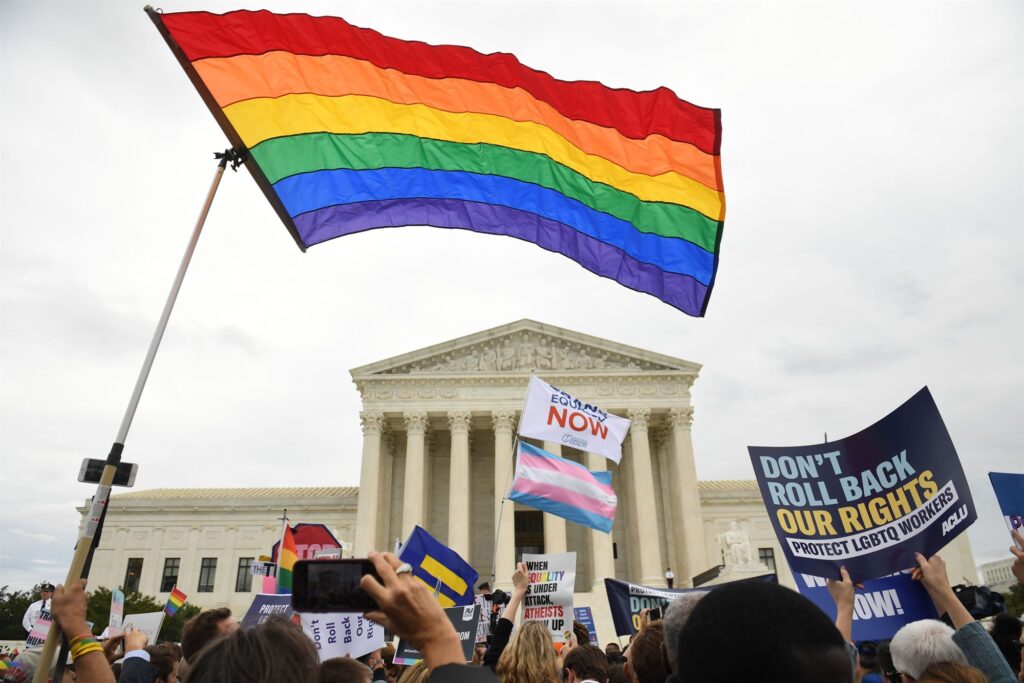Amy Coney Barrett has been confirmed to occupy the Supreme Court Justice seat by a 52-48 margin. Barrett is slated to be sworn in this morning, giving the Supreme Court a conservative majority. Just last week, the Human Rights Campaign released a letter opposing Barrett’s confirmation and was signed by 185 of the top LGBTQ+ Rights organizations. But an unprecedented rush to confirm the nominee by the same party who blocked a nomination 4 years ago for being too close to a presidential election proved to be successful. Here’s what that means for the rights of LGBTQ+ individuals across the nation.
During her hearing, many Democratic senators pressed Barrett on her views regarding marginalized individuals but they were given vague answers in return. Barrett insisted that she had “no agenda,” and that she “never discriminated on the basis of sexual preference and would not ever discriminate on the basis of sexual preference.” However, a quick look at her career suggests otherwise.
The judge, who famously praised the late Supreme Court Justice Antonin Scalia’s conservative interpretation of the Constitution, previously sat on the board of Catholic Indiana schools that discriminated against LGBT+ families for admission purposes and taught its students that homosexuality was a sin. During Donald Trump’s 2016 presidential campaign, he spoke of nominating judges who would consider overturning the 2015 landmark Obergefell decision legalizing same-sex marriage and Barrett could be the judge that helps Trump achieve that.
Barrett did not comment on wether or not she would uphold transgender rights if confirmed, but a look at her history as a judge and professor suggests an answer. During a 2016 lecture at Jacksonville University, Barrett misgendered a transgender student who was involved in a prominent case involving transgender rights. She also spoke out against the recognition of trans student discrimination as a type of sex discrimination protected under Title IX and went so far as to speak of that recognition as “stain[ing] the text of the statute.”
Barrett’s stance regarding the rights of LGBTQ+ people are important to know because they give insight into how she might view cases that reach the supreme court regarding the community. Already, the court is slated to have oral arguments on a case that will decide whether taxpayer-funded adoption agencies can turn away LGBTQ+ families on November 4th. A conservative majority Supreme Court could very easily rule against protecting the rights of its families. However, court cases specifically targeting the rights of LGBTQ+ individuals is just the tip of the iceberg.
The most important thing to keep in mind about the LGBTQ+ community is that it is one of the most diverse, with multiple members also forming part of other marginalized communities. Not only that, their intersectional identities means they tend to be the most oppressed individuals within those communities because of their sexual orientation or gender identity. This means the community will experience a loss every time the Supreme Court rules against protecting the rights of any marginalized group. Whether it be overturning Roe v. Wade, doing away with DACA, or failing to rule against the continuation of police brutality, Barrett poses a threat to queer, trans and gender-non-conforming folks everywhere.
